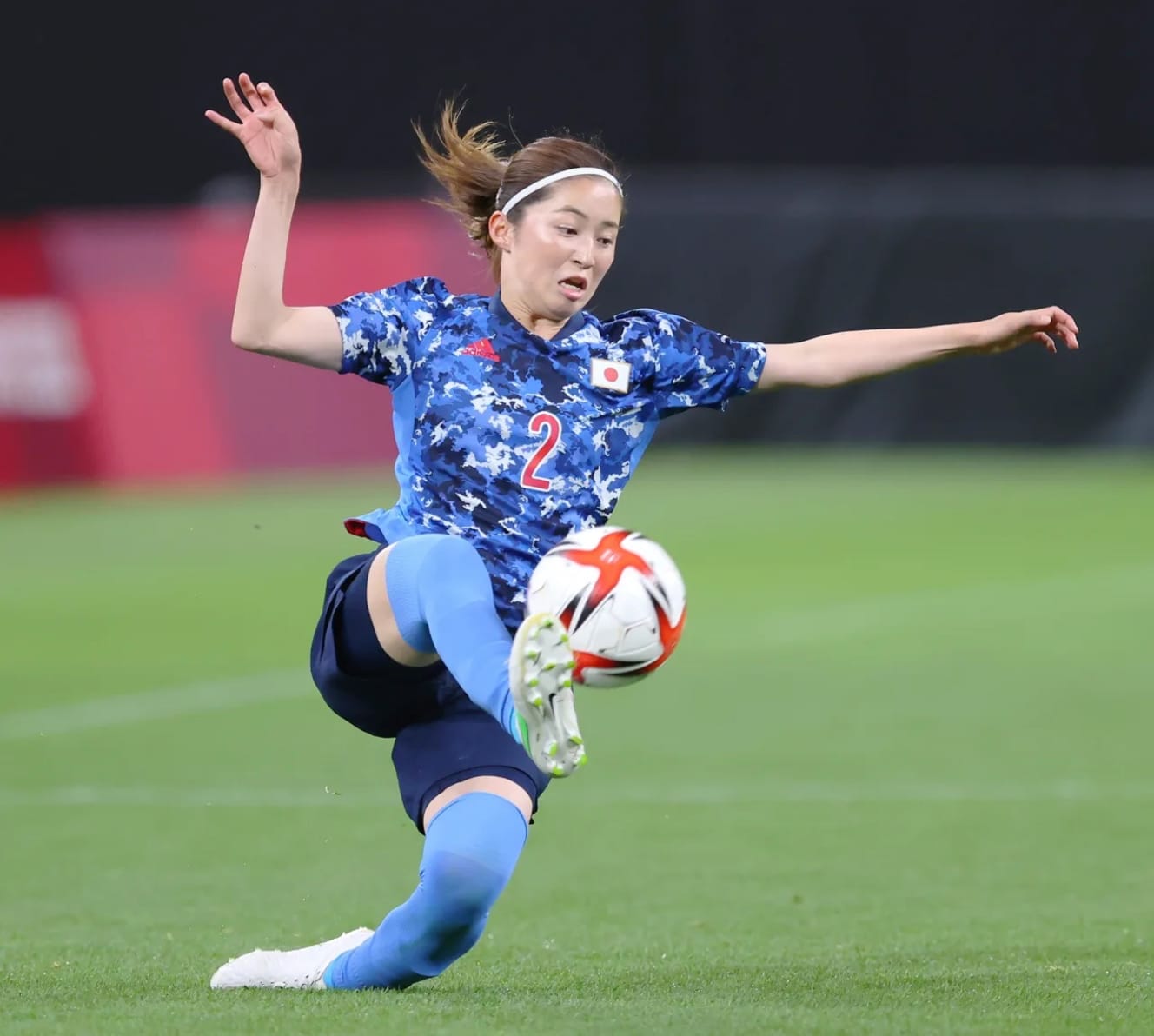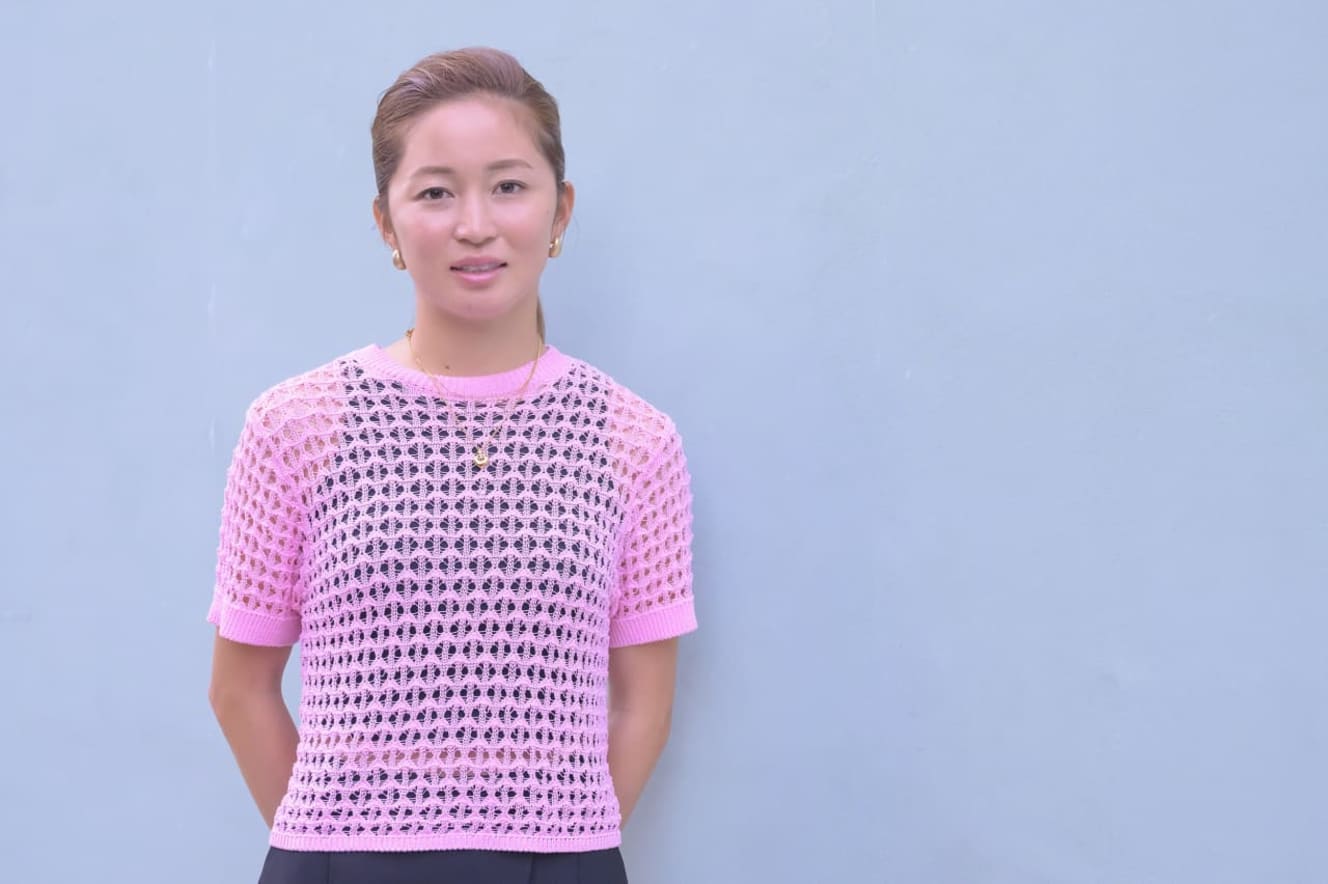Risa Shimizu, Key Player for Nadeshiko Japan, Featured in ‘VOCE’ Makeup Special
The steadfast right back vows revenge!

“Studio shoot was fun. I really enjoy things like this♡”
Sitting and gently smiling at the camera—Risa Shimizu (28), a steadfast right-back for the Japanese women’s soccer team at the Paris Olympics, is unmatched in this position. With her tactical vision and her role in attacking from defense, no other Japanese woman can surpass Shimizu.
Although she has been selected for two consecutive Olympic Games, a particular scene has remained in Shimizu’s mind over the past three years. In the 2021 Tokyo Olympics quarterfinal against Sweden, with the score tied 1-1, Shimizu was outpaced by forward Blackstenius, who scored a go-ahead goal by breaking through near post. Nadeshiko Japan did not even reach the medal rounds and ended up in the top eight.
“I was responsible for conceding the goal from behind, and I had never been outpaced like that domestically. Since I was deeply invested in the Olympics, it made me question if I was good enough as I was.”
The skill and speed of being outpaced by a non-Japanese player were something Shimizu had never experienced before. The crucial goal that led to their defeat caused her great anguish. After the match, Shimizu cried openly on the pitch.
“I had no thoughts of playing abroad.”
I don’t want to make the same mistake twice――. Shimizu has made a major resolution.
“Originally, I had no thoughts of wanting to play abroad, but the scene from the Tokyo Olympics made me start considering a move to Europe.”
She started playing soccer at the age of six and joined the youth team of Nippon TV Beleza from middle school. In August 2022, one year after the Tokyo Olympics, she left Nippon TV Beleza, where she had been for 13 years, for the first time and joined West Ham United in England.
“Moving at 26 might be considered late by general standards, but I think it was a good timing for me. I was fortunate to have excellent coaches in Japan, and while digesting what the coach told me, I also became able to come up with my own solutions when problems arose.”
In the English Women’s Super League, where 12 teams compete, West Ham, where Shimizu played for these two seasons, finished 8th and 11th, struggling in the lower ranks. This was a new experience for Shimizu.
“Playing almost every match in England was a positive experience for me. Since we were a weaker team, there were many opportunities for one-on-one situations and defensive plays during games. I went abroad to improve my defensive skills, so it was very beneficial. At Beleza, we were always competing for the championship, but at West Ham, we were fighting to stay in the league, so I was able to experience different and complex emotions and challenges.”
With extended periods of defense and the need to attack with fewer players, Shimizu also refined her attacking abilities, which is one of her strengths. In fact, her Nadeshiko Japan teammates told her, ‘You’ve increased the number of times you can break through a situation on your own,’ but Shimizu says, “There was more suffering than satisfaction.”
“After a match, what stays in my mind is the bad plays rather than the good ones. I start with self-reflection. For example, forwards watch their scoring scenes countless times. However, since a side-back’s role is fundamentally defensive, I watch the goals conceded countless times. It’s not that I have a negative personality, though.”
Given her position, Shimizu is involved in the scenes of goals conceded. Facing the scenes she would rather not look back on and wants to forget has surely been driven by a desire for revenge against the frustration she experienced at the Tokyo Olympics.
As for Nadeshiko Japan, they contested the world’s top spot with their victory at the 2011 Women’s World Cup and a silver medal at the 2012 London Olympics, but since their runner-up finish at the 2015 Women’s World Cup in Canada, they have not made it past the quarter-finals.
“At the time of the 2011 World Cup, I was a middle school student and a big fan of Nadeshiko Japan. When the members who won their first World Cup returned to their club teams and the Nadeshiko League (at that time) resumed, I helped with the operations for Nippon TV Beleza’s matches. I also served as a ball girl. The match brochures sold like hotcakes. I felt firsthand how Nadeshiko Japan’s success directly translated into popularity.
Now that I’ve joined Nadeshiko Japan, I again feel the greatness of the senior players. I’ve watched the World Cup final where we beat the U.S. twice since joining Nadeshiko Japan, and it always gives me goosebumps.”
For the upcoming Paris Olympics, I have one goal.
“I want to win the gold medal. I believe it won’t come true unless I speak it out. Having experienced many disappointments at world tournaments since I was young, my desire for the gold medal is strong. I will do everything I can to contribute to the team and fight with all my might in every match!”



From the July 26/August 2 combined issue of FRIDAY
Interview and text: Miko Ryokai PHOTO: Koki Nagahama hair & makeup: Mitsugu Takahashi